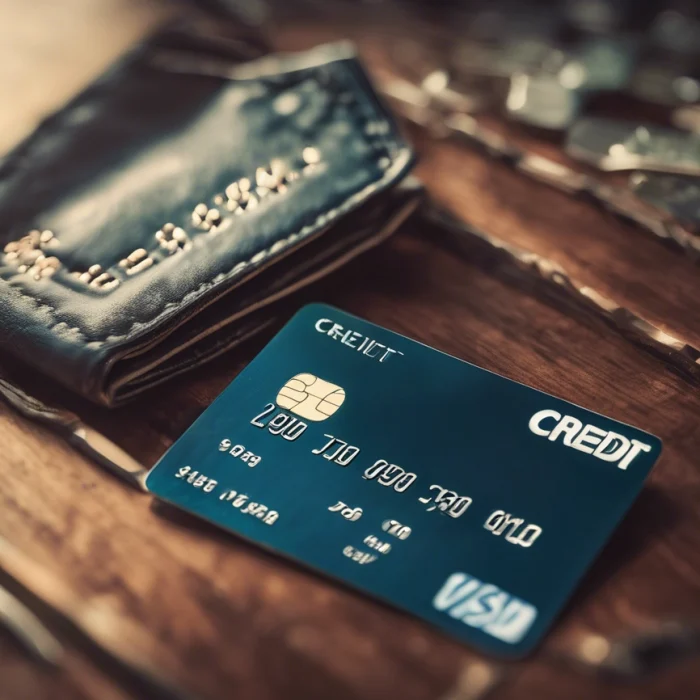Disclaimer:
While we’ve made every effort to ensure the accuracy of this information, it does not constitute legal advice specific to your situation. Any actions you take based on this article are at your own risk. We cannot accept responsibility for any loss or damage resulting from its use.
Section 75 Refunds – Free Protection for Credit Card Purchases Over £100
If you've spent over £100 and paid by credit card, you're entitled to powerful legal protection under Section 75 of the Consumer Credit Act 1974. It means your card provider is jointly responsible with the retailer if something goes wrong—whether an item is faulty, doesn’t arrive, or the seller goes bust. And best of all, it’s completely free.
Section 75 is your secret financial superhero.
Consumer Credit Act 1974, Section 75
🛡 What Is Section 75?
Introduced in the 1970s, Section 75 makes your credit provider legally liable alongside the seller for any breach of contract or misrepresentation. It applies to credit card, store card, or store installment credit purchases between £100 and £30,000.
This protection isn't a goodwill gesture—it's enshrined in law. If you use qualifying credit to buy a product or service and something goes wrong, you could claim a refund directly from your card provider.
Pay just 1p on your credit card, and you're covered for the whole cost.
UK Government guidance on Section 75 (Consumer Credit Act 1974)
💡 Pro Tip: Pay Just Part of the Cost on Credit
The UK Financial Ombudsman and FCA both acknowledge this principle: partial payments over £100 total still qualify.
Even if you only put a deposit on your credit card (as little as 1p), you're covered for the entire purchase value—so long as the full cost falls between £100 and £30,000.
You’re covered even if the retailer goes bust.
Financial Ombudsman Service – Section 75 explained
✅ What Section 75 Covers
Section 75 applies in many everyday situations. You’re covered if you:
- Bought something on a credit card that arrived faulty or wasn’t as described.
- Ordered something that never arrived.
- Paid for a service or item from a company that has since gone bust.
- Purchased using credit via Apple Pay, Google Pay, or PayPal Credit.
- Used a store card or installment credit.
- Bought something while abroad or from overseas websites.
⚠️ Grey Areas
Coverage may not apply if you:
- Are a secondary cardholder.
- Bought something in another person’s name (e.g., a gift subscription).
❌ What Section 75 Doesn’t Cover
You won’t be protected if:
- You used a debit card, charge card, or Buy Now * Pay Later service (try chargeback instead).
- You bought items that total over £100 only when combined (e.g., three * items for £40 each).
- You paid through a third-party seller (like a travel * agent or marketplace like Amazon *).
- You used cash from a credit card or hire purchase financing.
💻 What About Scams?
Section 75 may help if:
- You were scammed into buying a product that never showed up.
- You received something significantly different from what was promised.
However, if a third-party payment processor was used like PayPal (breaking the direct link between you and the seller), Section 75 likely won't apply. In that case, try a chargeback.
Chargeback isn’t a legal right, but it can still get your money back.
Visa, Mastercard & American Express chargeback scheme rules; FCA consumer protections
🔁 Section 75 vs Chargeback
Section 75: Legal protection for credit card purchases £100.01–£30,000.
Chargeback: Voluntary scheme from Visa, Mastercard, and Amex that applies to any card payment, including debit.
🕒 Time Limits
- Section 75: No time limit to claim.
- Chargeback: Usually within 120 days of noticing the problem.
💡 Which Should You Use?
If you qualify for both, try chargeback first—it’s faster and doesn’t affect your legal rights. If that fails, move to a Section 75 claim.
You don’t have to go through the retailer—your card provider is liable too.
Consumer Credit Act 1974 – joint and several liability clause under Section 75
📝 How to Make a Section 75 Claim
- Contact your card provider (not Visa/Mastercard directly).
- Provide:
- Purchase details (item, date, amount).
- Reason for your claim (e.g., item didn’t arrive or was faulty).
- Evidence, such as receipts or communication with the seller.
- Explain any attempts you've made to resolve the issue with the seller.
Many banks allow you to start the claim via online or mobile banking.
If your claim’s rejected, the Financial Ombudsman is free and can still help.
Financial Ombudsman Service – How we can help with credit card complaints
🏛 If Your Claim Is Rejected
If your provider:
- Refuses your claim,
- Takes more than 8 weeks to respond, or
- Doesn’t handle it fairly…
You can escalate to the Financial Ombudsman Service—completely free. They can investigate and, if they side with you, order the company to refund or compensate you.
Section 75 FAQs
❓ What if my purchase was over £30,000?
That may fall under Section 75a, which covers purchases up to £60,260—but only when the credit is directly linked to the item (e.g., finance through a car dealer). The rules are stricter, and you must try the seller first before claiming from the lender.
❓ I cancelled my credit card—can I still claim?
Yes. What matters is that the original purchase was made on a credit card, not whether the card is still active.
❓ I can’t get credit—do I have options?
You won’t get Section 75 protection without a credit card, but some prepaid cards offer limited purchase protection (not legal coverage). For example, Cashplus has a debit card that mimics some protections.
❓ Which credit card is best for Section 75 protection?
Pick one that suits your needs:
- Cashback credit cards – Earn money back on everyday spending (as long as you pay in full monthly to avoid interest).
- 0% purchase cards – Spread large payments over time without paying interest (great if you need time to repay).
Golden Rule: Always set up a direct debit to pay in full each month to avoid interest charges. Section 75 protection is only worthwhile if you’re not racking up debt to get it.
Stay Safer When Shopping Online with a VPN
Using a Virtual Private Network (VPN) can add an extra layer of security when shopping online, especially on public Wi-Fi or unfamiliar networks. A VPN encrypts your internet connection, making it much harder for hackers to intercept sensitive information like your credit card details or login credentials. It also helps protect your privacy by masking your IP address, reducing the risk of targeted ads, price manipulation, or tracking by retailers. For safer, more private online shopping—especially when buying from international sites—a reputable VPN is a smart and simple tool to have in your digital toolkit. See our Best VPN Deals UK 2025 Compare Veepn *, Surfshark *, NordVPN * & ExpressVPN * by Price and Performance
Section 75 rights – Think Twice Before Using PayPal with Your Credit Card













